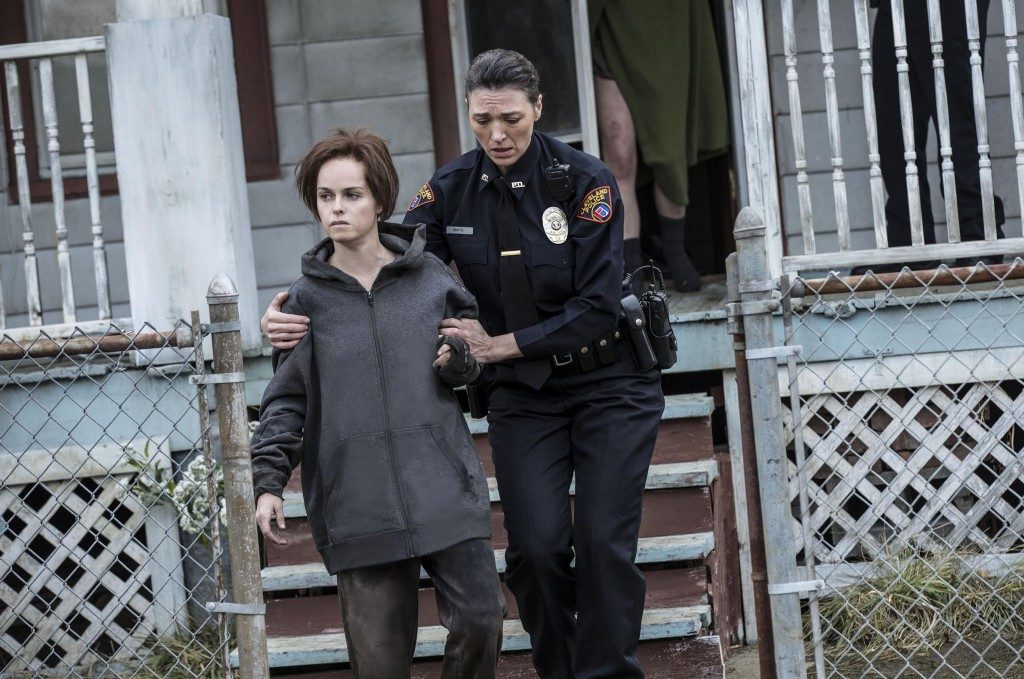Like
many people around the world, I was shocked and gripped by the story of the
women who were abducted and kept for over a decade by Ariel Castro in a house
in Cleveland, Ohio. When Sony first approached me to direct “Cleveland
Abduction,” my initial reaction
was, “Why
would anyone want to watch this film?”
But after reading
Michelle Knight’s book “Finding
Me: A Decade of Darkness, a Life Reclaimed: A Memoir of the Cleveland
Kidnappings,” my
outlook towards the project was transformed. This is a story of a woman’s courage and strength in the face of the unimaginable. Michelle endured eleven years
of sexual, physical and mental abuse at the hands of Castro. But her
story is not simply one of abuse and torture; it is about how she survived. Reading
her memoir, I felt passionately that this story needed to be shared to give
hope and inspiration to others, and I was 100% committed to
ensuring that Michelle’s story
was told with the dignity and integrity it deserved. My executive producers Judith Verno
and Frank von Zerneck were very much on the same page. We all wanted to make a
film that felt truthful and, ultimately, hopeful.
This
was my first directing project in the US, and things moved very quickly. From being officially offered the job
to shooting the movie, there was just under three weeks of prep. I had started doing lots of research
on the story beforehand and found lots of articles, documentaries and news
clips online. The
research was a useful tool throughout the shoot. After long (and emotionally draining) filming days, I would watch the court hearings or news
clips back in my hotel room as a reminder of what this story means to Michelle Knight, Amanda Berry, Gina DeJesus and their families and friends. It was a big responsibility, and I never lost sight of that.
This
film is Michelle’s story, and writer Stephen Tolkin did
an amazing job creating a narrative that allowed our story to cover 11
years in 90 minutes. Michelle had a difficult life before she entered the house, but one thing motivated her throughout those years in captivity — the overwhelming
need to be reunited
with her son. This formed the heart and spine of our story.
Casting
the right actress to play Michelle was crucial. It is a tough role, requiring great emotional range,
maturity, vulnerability and strength. Taryn Manning was perfect. I’d been a huge fan of her work, and I knew she could really step into the role and embody Michelle’s courage
and spirit. There was never an “easy” day of filming for her. This film demanded everything of
Taryn, and she
gave it.
Raymond
Cruz was also the ideal actor for the part of Ariel Castro. A difficult role to undertake,
Raymond brought a complex depth to this terrible character. Katie Sarife and Samantha Droke also
had the challenging jobs of playing Gina and Amanda, respectively, and gave
genuine and touching performances.
Filming
was 18 days on location in Cleveland, with the majority of it shot in a very small
house. The
shoot was intense, claustrophobic and grueling, but it was important to me that my
actors felt safe, given the scenes they would have to recreate. But we
all kept sight that this was Michelle’s true story. She had lived through these
horrors, and so everyone took their involvement on the film very seriously.
The
look of the film was very important to me as well, and I worked very closely with
talented DP Richard Wong to ensure the film felt raw. I didn’t want it to ever feel “pretty” or stylized or heightened. I wanted it to be ugly and real. Not words a DP often wants to hear!
This minimalist approach also translated to the music and sound design, with an
atmospheric score by Tony Morales. I
wanted us to be on Michelle’s journey — to see what she saw, feel what she felt, hear
what she heard.
“Cleveland
Abduction” is an important film, and I feel honored to have led the project. It bears witness to the extraordinary courage of
these three women. By sharing Michelle’s story,
it might give others the hope, strength and faith to never give up.
Cleveland Abduction will debut on Lifetime on
Saturday, May 2, on 8pm/7pm central.
Alex Kalymnios is a British film and TV director. Her UK
credits include the BAFTA-nominated “Becoming Human,” “Waterloo Road,” “Eastenders” and “Hollyoaks Laters.” Her recent US credits include “Cleveland Abduction” and “Salem.”






